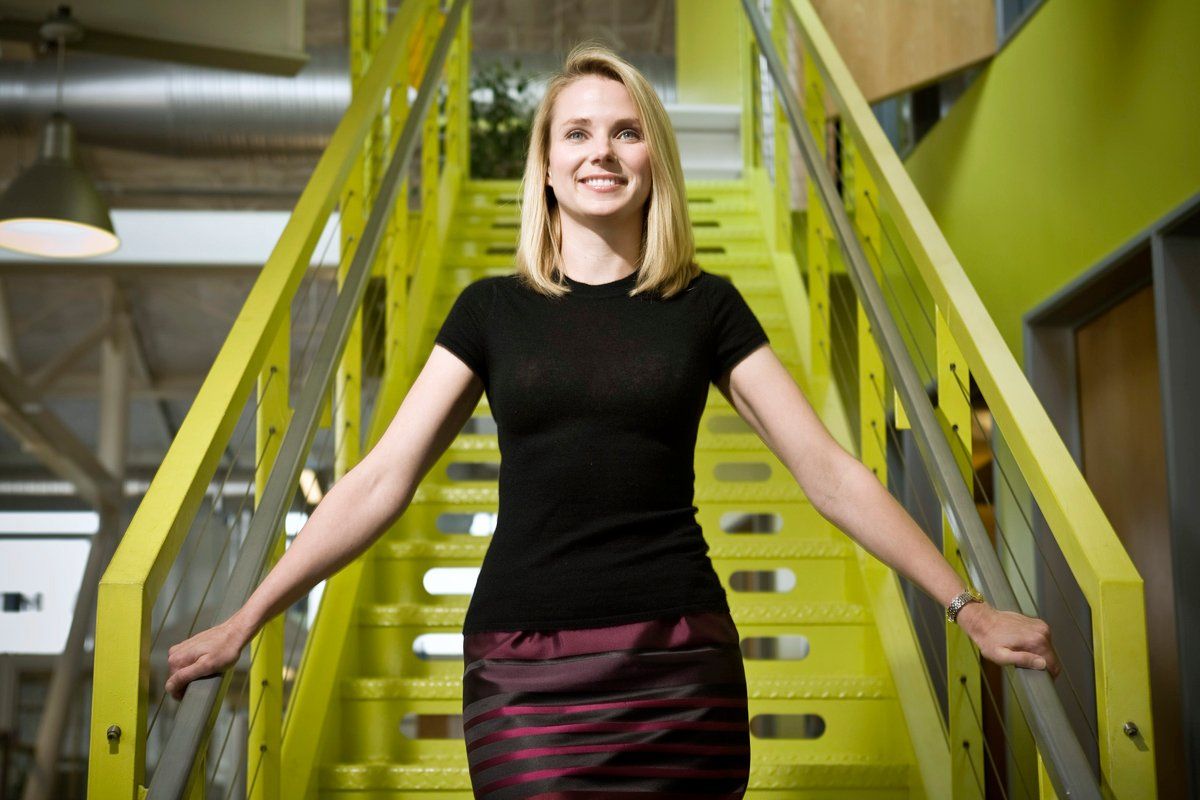
Why are so few women working in the technology industry?
Well, it's something that I care a lot about changing. I love technology, and I don't think it's something that should divide along gender lines. I think there's a lot of contributions that have yet to be made overall in this space regardless of gender. I've seen studies that show there are things that happen along the way at middle school and high school with girls in math and science. I guess I was very lucky. I was always good at math and science, and I never realized that that was unusual or somehow undesirable. So one of the things I care a lot about is helping to remove that stigma, to show girls that you can be feminine, you can like the things that girls like, but you can also be really good at technology. You can be really good at building things.
What percentage of engineers in Silicon Valley are women?
It hovers somewhere around 15 to 17 percent in the technical areas, but here at Google we are slightly higher than that. We're at about 20 percent.
Does Google make an effort to recruit women and hire more female engineers than the industry average?
I was Google's first woman engineer. And right away during my interview, [Google cofounders] Larry [Page] and Sergey [Brin] said, "You know, we have seven engineers, and they're all guys. But we've thought a lot about how we want to start our company, and we've read a lot of books, and we know that organizations work better when there is gender balance. So it's important to us that we have a strong group of women, especially technical women, in the company."
It's something that they've had to work at over time. There was one point in the early days when we had hired 16 men in a row into engineering, and Larry said, "You know what? If we get to 20, I'm not going to sign any more offer letters until you start producing an equal ratio of women." That was the moment when we really started recruiting for technical women, helping to build programs around it, really putting a lot of effort into it. So it's something that the founders have always been very focused on.
In addition to hiring technical women, we've done a lot of things here that are aimed at making it a very good place for women to work. For example, in our hiring practices we make sure there's a woman engineer on each interview, and I think that makes a big difference in terms of how engineers relate to each other. Because there are a lot of male engineers who can only really relate to other men.
When you were growing up in Wisconsin, did you know you wanted to work with computers?
I really wanted to be a doctor, until my freshman year of college when I realized that while I was good at chemistry and biology, I really wasn't feeling challenged by it. I took a computer-science course to fill a prerequisite at Stanford, and I realized that every day was a new problem and every day you got to think about how to solve something new, how to reason through something new, how to develop an algorithm to solve for something you hadn't worked on before. It was something that I just found really intellectually interesting.
So you weren't a big computer geek in high school.
My first week at Stanford I bought a computer, and it was the first computer I ever owned. I had to be taught how to turn it on and even how to use a mouse, even though for a lot of people a mouse is very intuitive. I took my first computer-science class the following spring. Then I found this interesting, quirky degree program called symbolic systems, which is philosophy, cognitive psychology, linguistics, and computer science.
In those courses, were you typically the only woman?
In the upper-level computer-science courses I guess I was. There was this columnist at The Stanford Daily that I really liked. One day she wrote this column about campus icons, meaning people you recognize but you don't know their name, like the crazy guy in the plaza who yells at you when you bike past him. So she had this list, and I was reading through her column and kind of chuckling to myself about these people, and then there was someone on the list that was "the blonde woman in the upper-level division computer science classes." And I was like, "Who is that?" And then I'm like, "Oh, it's me!" so I guess I realized at that point that I was somewhat unusual.
Did you ever feel there were obstacles you faced that a man going into this field might not have encountered?
I really didn't. I felt a huge amount of support. [Computer-science professor] Eric Roberts, who was my mentor all through Stanford, really reached out to me and said, "You know what? You're really good at this. You could go far in this."
Uncommon Knowledge
Newsweek is committed to challenging conventional wisdom and finding connections in the search for common ground.
Newsweek is committed to challenging conventional wisdom and finding connections in the search for common ground.
About the writer
To read how Newsweek uses AI as a newsroom tool, Click here.








